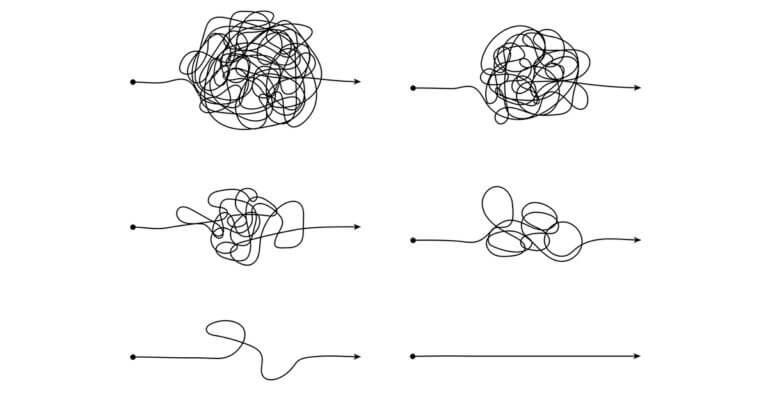April 14, 2021

Patient Search Thyself
Yeah, we’ve seen the office signs and coffee mugs. Don’t confuse your Google search with my medical degree. I get it. You’re smart because you went to medical school. We’re dumb because we diagnosed ourselves by looking up our symptoms online.
But maybe we’re not as dumb as you think we are. At least according to a new study in JAMA Network Open, which you can download hereicy
Two researchers from the Harvard Medical School wanted to know if non-M.D.s, which the researchers from Harvard referred to as “laypeople,” were any good at diagnosing or triaging medical symptoms and whether their ability to diagnose or triage symptoms got better after researching the symptoms online.
To find out, the researchers pulled together a representative sample of 5,000 laypeople age 18 or older and presented them with 48 M.D.-validated vignettes of medical symptoms and conditions ranging from common to severe. They asked the laypeople to diagnose the symptoms and conditions and recommend one of four triage actions:
- Don’t go to the doctor because it will go away on its own like a cold or poison ivy
- See the doctor within a week because it won’t go away on its own but it’s not an emergency like bad sinus infection or acid reflux
- See the doctor within a day because it’s urgent but not life-threatening like cellulitis or a urinary tract infection
- Call 911 or go to the emergency room because it is life-threatening and needs immediate attention like liver failure or a stroke
The researchers then asked the same laypeople to do the same thing but after they researched the same symptoms and conditions in their assigned vignettes online via search engines, websites, social channels, news sites and patient forums. The average time spent online per case was 12 minutes.
As it turned out, the diagnostic acumen of the laypeople got better after researching their symptoms and conditions online in the same amount of time it takes me to overcook a burger on a hot grill:
- 54.5 percent of the laypeople accurately diagnosed self-care cases after using the Internet compared with 52.9 percent before their online search
- 45.8 percent of the laypeople accurately diagnosed one-week cases after using the Internet compared with 41.1 percent before their online search
- 30.0 percent of the laypeople accurately diagnosed emergency cases after using the Internet compared with 27.6 percent before their online search
- 27.3 percent of the laypeople accurately diagnosed one-day cases after using the Internet compared with 25.3 percent before their online search
For all cases, the overall post-search diagnostic accuracy rate was 39.5 percent compared with 36.8 percent pre-search.
In rank order, the online sources that the laypeople cited as most helpful in researching their assigned symptoms and conditions were:
- Direct from search engine (48.2 percent)
- Health specialty site (42.9 percent)
- General information site (4.1 percent)
- Other (2.6 percent)
- Social network site (1.5 percent)
- News site (0.5 percent)
- Forum (0.2 percent)
I’m guessing that the ranking reflects that fact that a search for combinations of medical symptoms and conditions more often than not will pull up links to prominent hospitals, health systems, medical groups and disease-specific advocacy groups. Good job you search engine optimization healthcare people.
Interesting, laypeople’s accuracy rate for what to do after an accurate diagnosis actually dipped a little post-search—to 46.1 percent for all cases from 47.3 percent for all cases. I don’t get that at all unless it’s the statistical effect of the I-won’t-go-to-the-doctor-for-anything or I’m-sure-it’s-gas-not-a-heart-attack segments of the respondent sample.
When you put it all together, we laypeople are pretty dumb given a post-search diagnostic accuracy rate of less than 40 percent and a triage accuracy rate of less than 50 percent. But I don’t think we’re quite as dumb as most doctors think we are when we come into the office and tell you what we just read online.
Or, as the researchers put it: “Results of this survey study challenge the common belief among clinicians and policy makers that using the Internet to search for health information is harmful.” But they added: “Although it was associated with no harm, any benefit of an Internet search was small.”
That’s enough to get rid of the signs and coffee mugs and to start at least feigning interest, isn’t it?
To learn more on this topic, please read the following on 4sighthealth.com:
Thanks for reading.
Wear a mask. Socially distance. Wash your hands. It’s not over.





